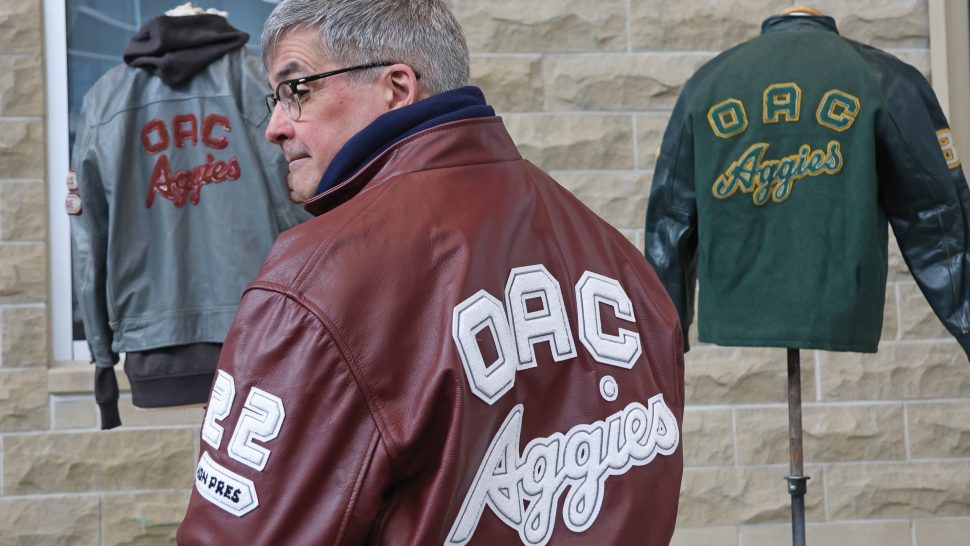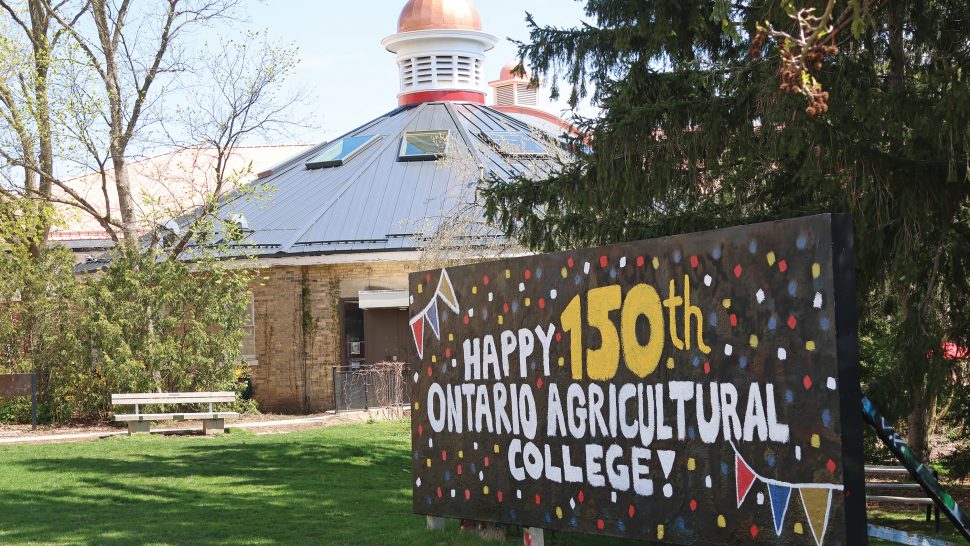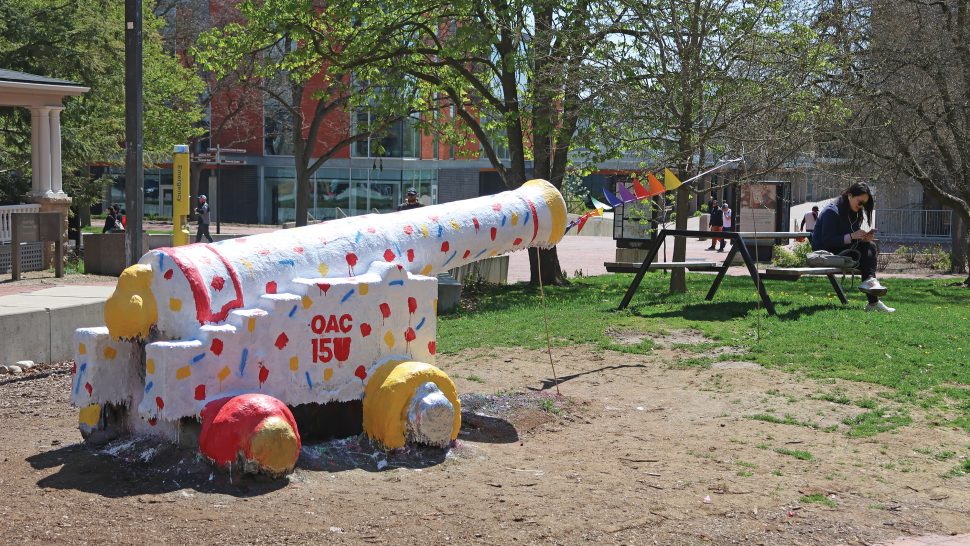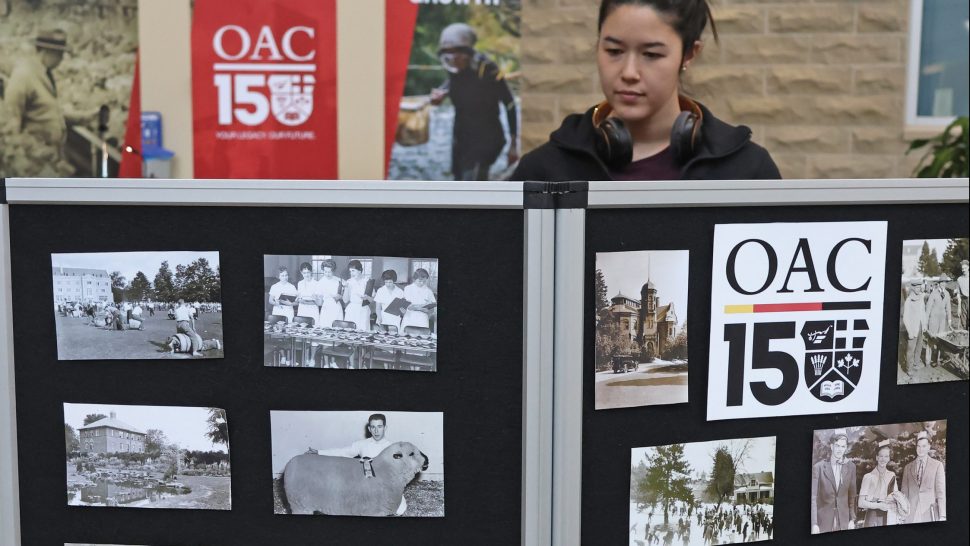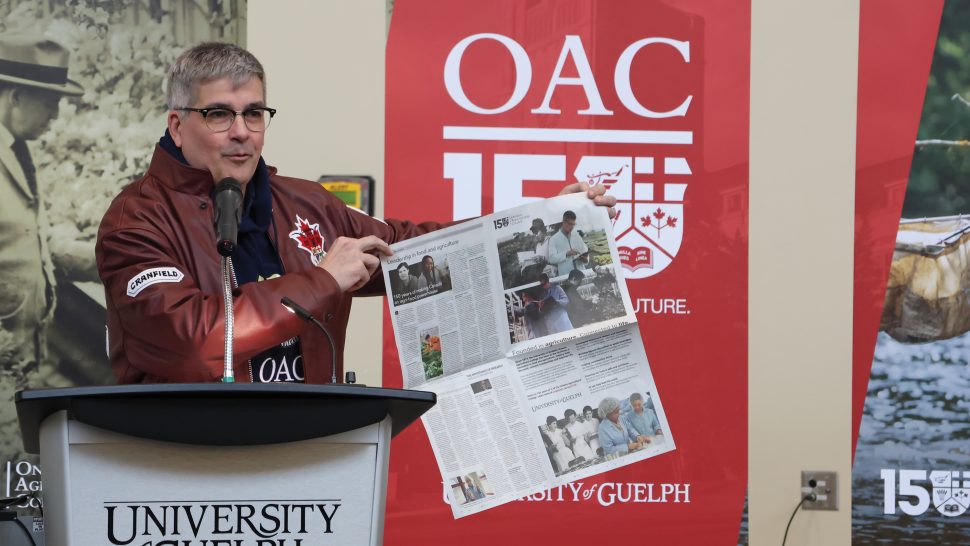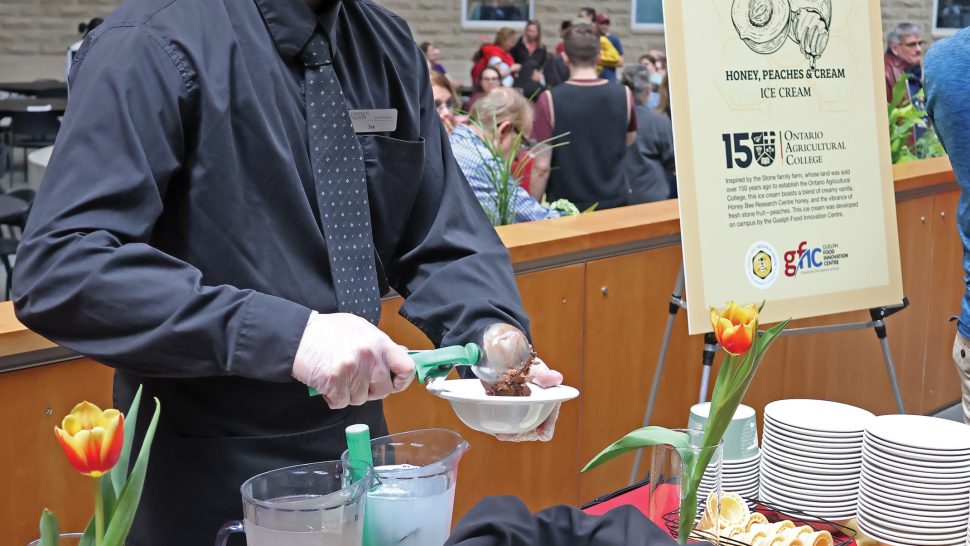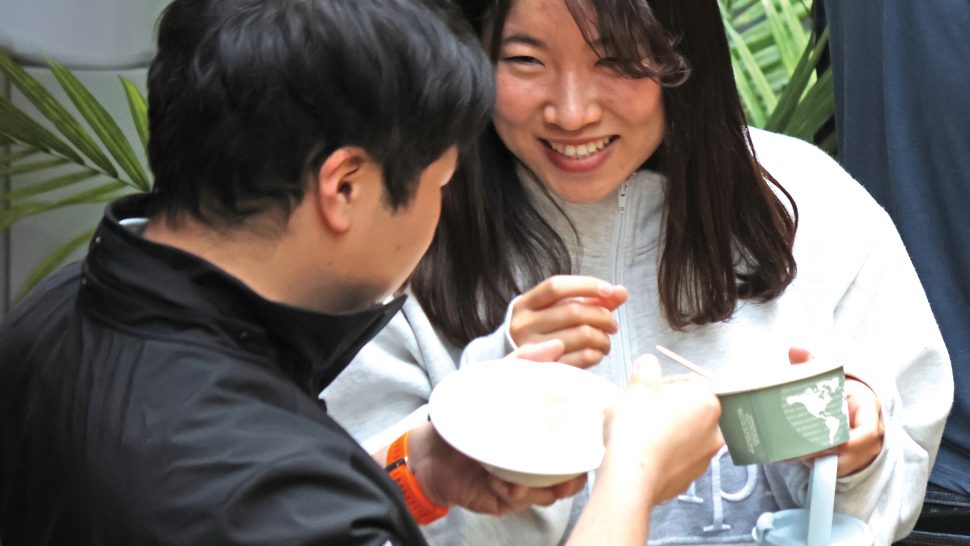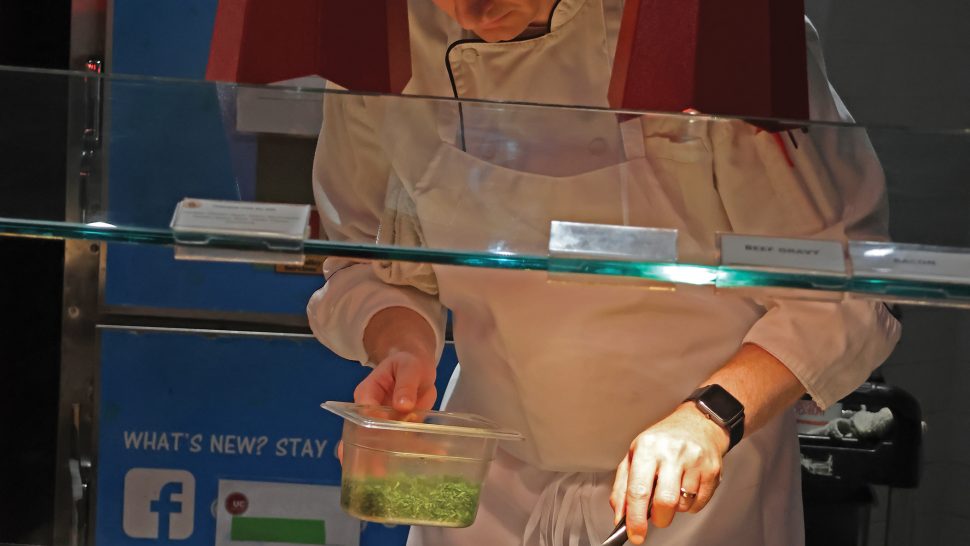GUELPH – As staff and students lined up in the University of Guelph’s Summerlee Science Complex to get a taste of a new ice cream flavour, it might have appeared the May 1 event was all about food.
But to Ontario Agricultural College (OAC) acting dean John Cranfield, it was all about people.
“The life of a college is really about the people and what they do,” said Cranfield.
He was speaking to reporters in advance of an ice cream social for OAC students faculty and staff to launch the college’s 150 anniversary celebrations.
Cranfield said the college is fundamentally about its people – not just those who are there now, but also those who are part of its long history, and those who will be part of its future.
The college, he said, was founded on May 1, 1874 on a parcel of land sold to the Ontario government by William Stone.
Back then, it was known as the Ontario School of Agriculture and Experimental Farm. There were just 28 students, and classes were held in the farmhouse of the 500-acre property.
By 1880, the name had been change to the Ontario Agricultural College, “to more accurately reflect its mission and legitimize its ambition to be a respected institution of higher learning,” according to a history of the college posted on the U of G website.
Along with the Ontario Veterinary College and the MacDonald Institute — the OAC’s all-female college — the OAC was one of the three founding colleges of the University of Guelph, Cranfield said.
“We’ve grown as a college, obviously,” he said. “But we haven’t lost that thread of how important agriculture is to the University of Guelph.”
The ice cream served to college members on May 1 was a nod to the OAC’s historic and agricultural roots.
Sweetened with honey from the U of G’s Honey Bee Research Centre, and made with peaches – a stone fruit – the flavour was dubbed “Heart of Stone” in honour of the landowner who provided the original farm land for the college.
Cranfield also alluded to the symbolism of the treat.
“It means that we can take something that’s grown in our own backyard and turn it into something we can eat today,” he said.
Attendees got to sample it for free, but they were told it would also be sold in the University Centre.
There in the “chef’s hall,” there was also a special menu of hot food being served up in honour of the special anniversary.
It included mashed potatoes made with Yukon gold potatoes, asparagus soup, asparagus quiche, and barley risotto, all foods with connections to U of G and the OAC.
Some people might not know the Yukon gold potato was developed at U of G, Cranfield said.
Millennium asparagus – bred to perform well in colder climates and to adapt to different soil types – was also developed at the university, as were Omega-3 eggs, and several proprietary barley varietals.
Food will figure prominently in the events planned to celebrate the college’s 150th over the coming year, including an 800-guest celebration dinner planned for Alumni Weekend in June.
Asked about other surprising things people might not know about the OAC, Cranfield offered that astronaut Roberta Bondar is an alumnus.
Speaking about the future, he noted the college’s efforts to address big-world problems, such as climate change.
“The future for us is about how we can use science and technology to address those problems,” he said.
Speaking to those gathered at the May 1 event, Cranfield described how lucky he feels to be part of the OAC.
“We get to be part of something that transcends us as individuals,” he said.
He added he likes to pause and reflect on the people who came before who helped to create the opportunities that exist today.
“It’s a reminder of what others did to support us,” he said.
He encouraged the crowd to “think about how you can be part of shaping others’ journey.”




